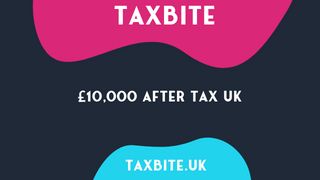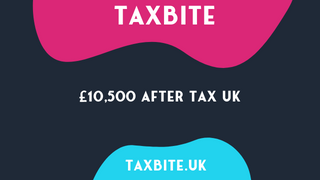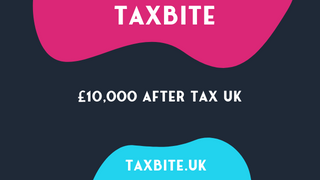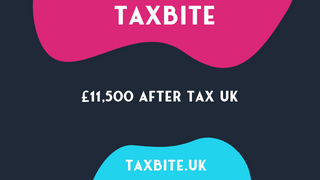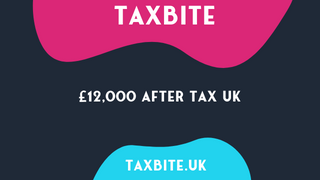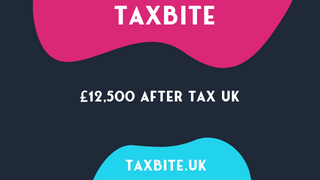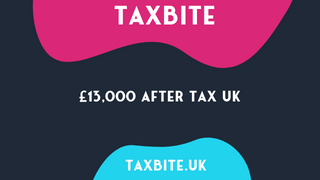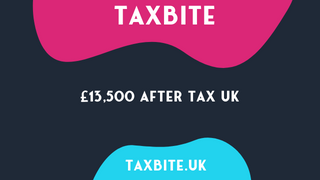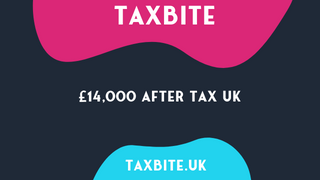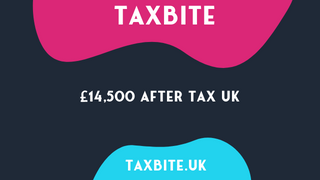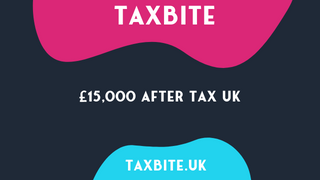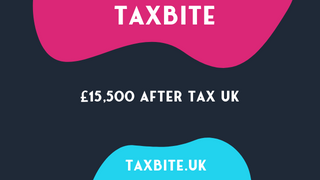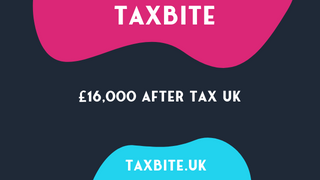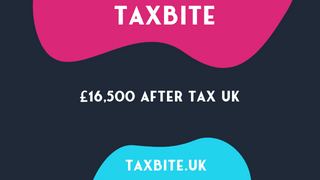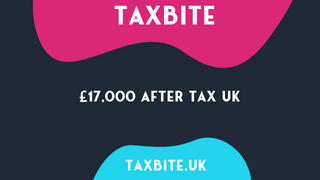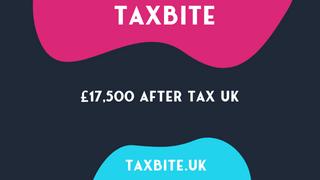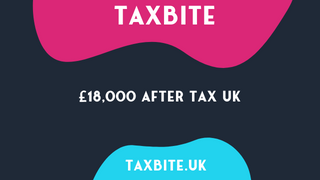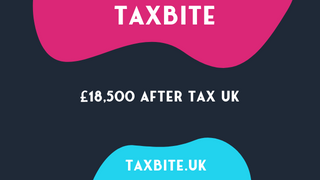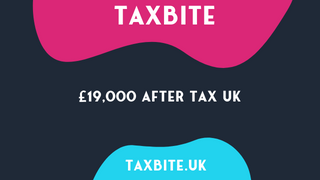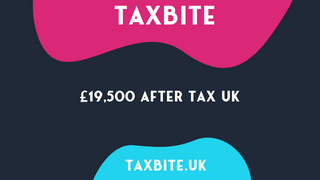Understanding our take-home pay after taxes is crucial in today’s world. It may seem complicated, but don’t worry, we have all the necessary information covered. In this section, we’ll analyze the factors affecting our take-home pay after taxes. We’ll examine the gross income for various job categories and time periods to gain a better understanding of potential earnings.
Gross income is an important factor when it comes to take-home pay. It changes based on job category and time period. Full-time and part-time employees get paid differently; salaried ones monthly, hourly wage earners weekly or fortnightly. Tax rates are also different.
To understand gross income variations, it’s useful to break it down. Table 1 says full-time workers with 40 hours/week make £30,000/year, and part-time ones (20 hours/week) £15,000. Temporary workers can make £10-£12/hr.
Taxes affect gross salary, so marginal tax rates must be taken into account when calculating take-home pay. According to section 2 of the reference data, earning £11,500 in 2023/24 will mean no tax.
National Insurance contributions can be adjusted to increase net pay. Voluntary contributions reduce them, so employees get more.
Plus, State Pension Lump Sum issues must be considered. They influence taxable income, section 4 explains.
In conclusion, gross income depends on job category, working hours, and country. Taxes are imposed to fund medical care, job provisions, and more. The net pay for £11,500 is easy to calculate – easier than finding a single hair on Boris Johnson’s head.
Are you curious about how much you’ll take home with a salary of £11,500 in 2023? Look no further! In this section, we’ll explore how to calculate your net pay, taking into account the latest tax rates and thresholds for the 2023-24 tax year. We’ll also discuss marginal tax rates and how they impact your take-home pay. After reading this, you’ll have a clearer idea of how much you’ll actually be earning – no surprises come payday!
Knowing the tax rates and thresholds for 2023-24 is essential for managing finances. Personal allowance and higher-rate threshold will rise, meaning taxpayers have more room to earn before having to pay tax. Below is a table of the tax rates and thresholds:
| Taxable Income | Tax Rate |
| Up to £12,570 | 0% |
| £12,571 to £50,270 | 20% |
| Over £50,270 | 40% |
Remember, there are three main Income Tax rates: basic rate (20%), higher rate (40%) and additional rate (45%). Scotland has different tax bands than the rest of the UK.
Understanding how marginal rates affect take-home pay is important, as well as knowing the different allowances that can impact it. People can choose options like voluntary pension contributions or salary sacrifice schemes to increase their net income and reduce taxable earnings.
In conclusion, knowing the tax rates and thresholds for 2023-24 allows people to manage their finances accurately. Don’t settle for being broke when you can be marginally less broke.
Earnings go up, individuals go up tax brackets. Marginal tax rates then become higher. Resulting in less take-home pay. Marginal tax rates are the % of tax paid on each extra pound earned after a certain income limit. As income increases, the proportion of income paid in taxes rises too.
Knowledge of marginal tax rates and how they affect take-home pay is key. In 2023-24, someone with a salary of £11,500 pays no income tax but NI is still due. Those earning over £12,570 are charged 40% per pound over the threshold. Every extra pound beyond the bracket will be taxed at a higher rate.
Marginal tax rates have a large impact on take-home pay. This can lead to less disposable income than thought. It’s best to think about marginal tax rates when negotiating salaries or taking extra sources of income. By understanding how marginal tax rates work, employees can manage their finances and optimize their net earnings. The HMRC also provide options to adjust income to reduce the negative effects of taxes. Make sure to keep more money in your pocket by understanding marginal tax rates and how they affect take-home pay.
Are you curious about how much you’ll be taking home after taxes in 2021? Understanding your National Insurance contributions can make a significant difference. In this section, we’ll walk you through how National Insurance affects take-home pay, and give you tips on adjusting income to maximize your net pay. Get ready to take charge of your finances and optimize your income options!
National Insurance is a government tax on earnings. It affects benefits such as healthcare and pensions. Employees pay 12% and employers pay 13.8% on incomes over £9,568 per year. For example, someone earning £11,500 yearly would have to pay an NI contribution of £511.56. This would reduce their net income to £10,988.44.
Supplementary or reduced payments cannot increase take-home pay. However, voluntary class three contributions can be made to build up entitlements for the state pension and other benefits. This is worth considering. It helps to bridge gaps in NI records and allows full entitlements.
The Personal Allowance threshold set by HMRC each year affects National Insurance’s impact on take-home pay. This year, you can earn up to £12,570 before paying tax or National Insurance. So, those earning below this limit could save hundreds of pounds annually. Knowing how National Insurance affects take-home pay can help you plan your finances and minimize tax burdens.
Boosting your income to score extra take-home pay can be a smart move. By altering your earning, you could owe less tax and National Insurance. Here are five simple steps to change your income and maximize your net pay:
Be aware that making changes could affect your eligibility for income-based benefits. But, with these steps and careful consideration of the effect on your finances, you can adjust your income to get more net pay each month.
Making the most of your state pension lump sum means understanding its taxation implications. In 2023, those who reach state pension age will receive a lump sum payment under the new rules. This payment will be taxed as income, which means that it will affect your taxable income. To ensure that you make informed financial decisions, it is important to understand the latest tax implications. Additionally, it is important to check if you qualify for the payout.
Receiving a State Pension Lump Sum? Important to consider how it’ll affect your taxable income. This lump sum is classified as income and must be reported to HMRC. Tax you pay on the Lump Sum depends on your current tax bracket and other income.
The Lump Sum adds to your other income sources. Say you earn £11,500 and get a £10,000 Lump Sum – your total income will be £21,500. How much of the Lump Sum is taxable depends on your total taxable income that year. Low incomes have tax-free limits set, but these lessen at higher levels of income.
Before taking out a Lump Sum, think about how it’ll impact long-term taxes and pensions. It’ll vary from person to person.
It’s essential to think about tax when you’re considering getting a State Pension Lump Sum. Before you claim, you need to understand the qualification and taxation rules. To get the lump sum, you have to be of State Pension age and have deferred your pension. The amount of the lump sum is calculated based on the number of years you’ve deferred, up to 18 months of State Pension. But, it’s taxable.
The amount of tax on the lump sum will depend on your other income in the tax year. If you have no other income or if your total taxable income is below the personal allowance threshold, you won’t pay any tax. If it’s higher, then you may pay more tax. It’s important to take into account these tax implications, as it could change your overall financial situation and take-home pay. It’s wise to plan in advance and get professional advice before claiming the lump sum.
If you backdate your claim for state pension, you may get more money, but you may have to pay extra tax to HMRC. It’s important to know the qualification requirements and potential tax implications before you claim, so you don’t get any shocks when it comes to tax time.
Backdating your claim for state pension can have significant implications beyond just receiving a few extra pounds. It can also impact your taxable income and the taxation rules that apply to you. To understand these implications, let’s take a closer look.
First, it’s important to note that state pension payments are taxable income. If you backdate your claim and receive a larger lump sum payment, it could push you into a higher tax bracket. This means you may end up paying more in income taxes overall.
Additionally, if you receive a backdated state pension payment for a tax year that has already been assessed, you may have to submit an amended tax return. This could result in additional administrative burden and potentially higher tax bills or penalties.
It’s also worth noting that there are specific rules around backdating a state pension claim. You can typically only backdate for a maximum of 12 months, and you must have a valid reason for the delay in claiming.
In summary, while backdating your state pension claim may seem like a simple way to boost your income, it’s important to consider the potential impact on your taxable income and taxation rules. Be sure to carefully weigh the pros and cons before making a decision.
Backdating a State Pension claim could have a major effect on a person’s taxable income. Going beyond three months of backdating will give a lump sum payment. But tax rules apply, so this sum will add to the taxable income and might push them into a higher tax bracket.
It’s worth noting that this sum is not included as earned income for National Insurance. That means it won’t affect their entitlement to benefits or the amount of National Insurance they have to pay.
Given the potential effect on taxable income, a person should get advice from a financial advisor or Citizens Advice Bureau before deciding. They can provide guidance on how this decision might alter their financial situation, helping them to make an informed decision.
When it comes to backdating a state pension claim, you gotta know the taxation rules. You can backdate a claim up to 12 months, with a lump sum payment as a result. Whether this payment is taxed depends on your total income.
If the lump sum increases your income above the personal allowance level, then you’ll have to pay tax on the amount. The taxation rules say that the part of the payment in the current tax year will be taxed at your marginal rate.
Even if the lump sum doesn’t take you above the personal allowance threshold, it could still change the amount of tax you have to pay on other sources of income. This is because your total income for the tax year will increase.
To avoid issues later, it’s wise to get advice from a financial advisor or accountant before making decisions about backdating a state pension claim. Not understanding taxation rules could mean missing out on savings. So, get some advice.
Changes to tax systems are due in 2023. So, it’s essential to plan ahead. The personal allowance for income tax in the UK in 2023-24 will be £12,570. The basic rate will be 20% and higher rate 40%, for those earning above £50,270. This means they’ll get around £11,500 after tax. High earners, earning over £100,000, can expect a reduction in take-home pay. This is because their personal allowance will be lowered by £1 for every £2 earned above the threshold.
It’s wise to consider the economic impact of the tax changes. Data shows that this could affect economic growth and the UK’s overall financial position. So, it’s vital to stay informed and make the best financial decisions for yourself and family. To summarize, understanding the tax changes and planning accordingly is critical.
The take-home pay for an income of £11,500 after tax in 2023 is £958 per month.
The marginal tax rate for an income of £11,500 after tax in 2023 is 0.0%. This means that any additional income will not be taxed.
No, you do not need to pay any income tax on an income of £11,500 after tax in 2023 as it falls below the personal allowance threshold. You may still need to pay national insurance on this income, but no NI needs to be paid on the first £12,569 earned, which is the yearly NI threshold.
If you earn more than £11,500 in 2023, you may need to pay income tax and national insurance contributions on your earnings. The amount of tax you pay will depend on your income and the tax rates applicable at the time. You can use a tax calculator to estimate your tax liability.
A bonus generates net income on an income of £11,500 after tax in 2023 by adding the bonus amount directly to your net income. For example, a £1,000 bonus will generate an extra £1,000 of net income.
Yes, tax calculators allow you to adjust the tax results and enter other details such as student loan or pension contributions on an income of £11,500 after tax in 2023. This helps you to get a more accurate estimate of your take-home pay.
Here’s a list of similar salaries:
